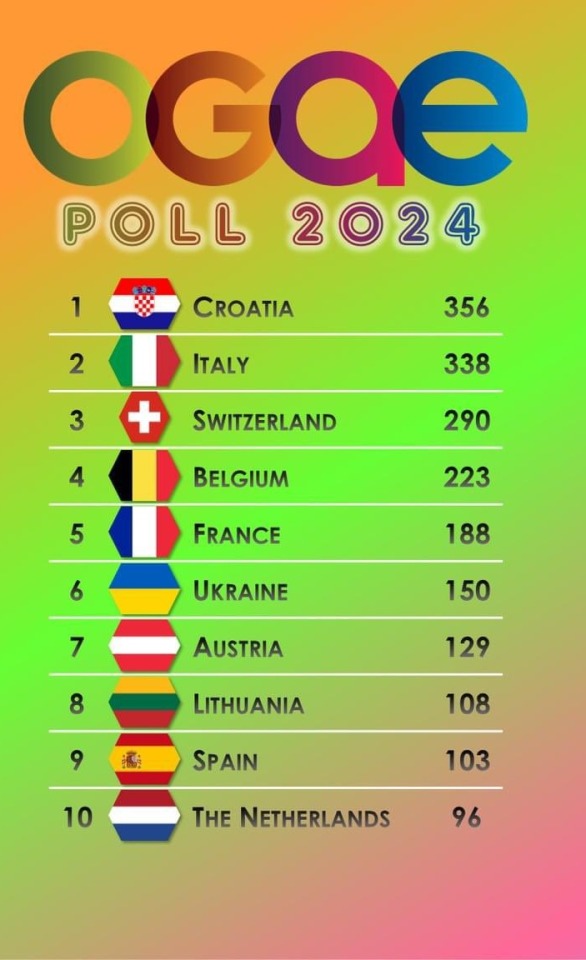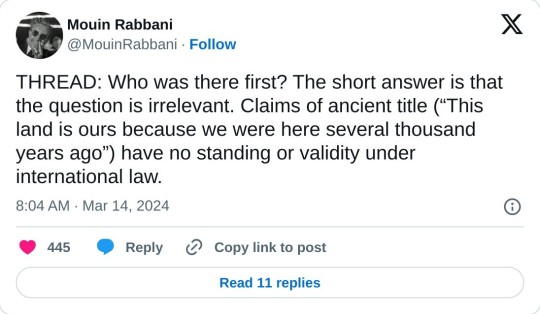#spain netherlands 2024
Text


Queen Letizia’s Outfits 2024
#queen letizia#spanish royal family#royaltyedit#royal fashion#leti outfits 2024#Benchellal#spain netherlands 2024#mine#i have mixed feelings about this dress
48 notes
·
View notes
Text









Monarchs of most of Europe (as of 14 January 2024)
#King Carl XVI Gustaf#King Harald#Grand Duke Henri#Prince Albert II#King Willem Alexander#King Philippe#King Felipe VI#King Charles III#King Frederik X#Sweden#Norway#Luxembourg#Monaco#The Netherlands#Belgium#Spain#Britain#Denmark#2024
122 notes
·
View notes
Text


Queen Letizia of Spain and Princess Catharina-Amalia of The Netherlands visit the reception offered by the Spanish Royals to the The Netherlands Royals during day three of the visit of the King Felipe VI of Spain and Queen Letizia of Spain to the Netherlands at the Straat Museum for street art and graffiti in Amsterdam, Netherlands -April 18th 2024.
#queen letizia#spanish royal family#spain#princess catharina amalia#dutch royal family#netherlands#2024#april 2024#spanish state visit#spanish state visit 2024#straart museum#royal children#my edit
41 notes
·
View notes
Text

Rehearsal Schedule!!!!!
~What's your favourite entry ????
#eurovision#esc 2024#esc greece#april 2024#esc france#esc sweden#2024#esc spain#esc germany#esc lithuania#esc italy#esc cyprus#esc croatia#esc netherlands#joost klein#silvester belt#marina satti#angelina mango#nebulossa
4 notes
·
View notes
Text
Here we go again !

#eurovision#esc#eurovision 2024#esc 2024#united by music#OGAE#OGAE 2024#OGAE Poll#OGAE Poll 2024#Croatia#Italy#Switzerland#Belgium#France#Ukraine#Austria#Lithuania#Spain#Netherlands#malmö#malmö 2024#eurovision song contest#eurovision song contest 2024
6 notes
·
View notes
Text
Uefa European Championship 2024
Feel free to suggest any poll you would like to see via chat or comment or ask :)
#poll#polls#silver survey#silversurvey#surveys#Calcio#Football#uefa euro 2024#Uefa European Championship 2024#National team#National teams#Nt#Germany#Italy#Italia#Nazionale#Azzurri#Spain#England#France#Portugal#denmark#netherlands#nederland#Belgium#croatia#Serbia#Recommend#Suggest#curiosity
2 notes
·
View notes
Text

#business#trends#trump 2024#digitalmarketing#itwizardakif#technotideconsultancy#donald trump#usa#usa news#united states#united states of america#america#the united states#france#florida#texas#georgia#netherlands#spain#finland#helsinki#lapland#suomi#sweden#austria
2 notes
·
View notes
Text
Where can I find Free Palestine protests and Ceasefire protests?
A super international and continually updated list of actions can be found at Samidoun: Palestinian Prisoner Solidarity Network's:

Calendar of Resistance for Palestine 2024
They list events by date, then alphabetically by country, then by city - and it's common for them to have dozens of actions listed for a single date, especially on the weekends.
The United States especially often has 40+ events on a single day, especially on the weekends.
Events are posted with links to the event info posted by whoever's hosting the vast majority of the time.
Look blow the read-more for a list of many of the countries that have been on this protest calendar, in alphabetical order, since I know so many websites/lists of actions are country-specific
*Obviously this isn't the only good source of listings for protest events - there are many others. This is by far the biggest/most international roundup I've found, though, so I started with this. If you know another good place for finding ceasefire protests/events, please feel free to add it in the notes, bc I'm planning to put a bigger roundup together once I find enough other sites
Countries that Samidoun has listed/does list protests for include (in alphabetical order):
North America:
United States
Canada
Mexico
Puerto Rico (listed separately in anti-colonial solidarity)
Hawai'i (listed separately in anti-colonial solidarity)
Europe:
Austria
Belgium
Bulgaria
Denmark
England
Finland
France
Germany
Greece
Hungary
Iceland
Ireland
Italy
Netherlands
Norway
Portugal
Romania
Scotland
Serbia
Spain
Sweden
Switzerland
Wales
SWANA Region (Southwest Asia/North Africa)*:
Bahrain
Iraq
Jordan
Kuwait
Lebanon
Palestine
Tunisia
Turkiye (Turkey)
*Samidoun notes that "We know that these events are mainly international and that the Arab people are marching everywhere for Palestine – we will be honored to add more Arab events whenever we are informed!"
Asia:
Bangladesh
India
Indonesia
Japan
Malaysia
Maldives
Pakistan
South Korea
Africa:
Kenya
Mauritius
Nigeria
South Africa
Tanzania
Tunisia
*Duplicating North African countries (well, Tunisia) here from the SWANA list btw
South America:
Brazil
Colombia
Chile
Peru
Venezuela
Australia and Oceania:
Aotearoa (New Zealand)
Australia
#reminder that “palestine” and “cw war” are the tags for all of my posts related to palestine#and that I only post relatively positive news about progress toward peace and resistance actions and the like#btw do NOT mess around in the notes with islamophobia OR antisemitism#neither are even remotely acceptable#palestine#cw war#free palestine#free gaza#israel#middle east#gaza#palestinian genocide#genocide#cw genocide#nakba#second nakba#ceasefire#palestine genocide#ceasefire now#palestine protest#gaza protests#gaza strip#gaza genocide#war crimes#ethnic cleansing#colonialism#anti zionisim
3K notes
·
View notes
Text
FESTIVALS 2024:
March 30th — Tecate Pal Norte
June 8th — Away From Home Festival | Mexico | TICKETS
June 22nd — Pinkpop Festival | Netherlands | TICKETS
July 4th — Main Square Festival | France | TICKETS
July 7th — Ruisrock | Finland | TICKETS
July 21th — MEO Marés Vivas | Portugal | TICKETS
July 26th — Morriña Festival | Spain | TICKETS
August 2nd — Arenal Sound | Spain | TICKETS
August 3rd — Santander Music Festival | Spain | TICKETS
August 10th — Sziget Festival | Hungary | TICKETS
August 16th — Frequency Festival | Austria | TICKETS
August 18th — Cabaret Vert | France | TICKETS
August 23rd — Victorious Festival | UK | TICKETS
August 24th — Zurich Openair | Switzerland | TICKETS
August 30th — Festningen | Norway | TICKETS
September 6th — Live From Fest Istanbul | Turkey | TICKETS
September 7th — Lollapalooza | Germany | TICKETS
September 8th — Super Bloom | Germany | TICKETS
429 notes
·
View notes
Text

TIARA ALERT: Queen Maxima of the Netherlands wore Queen Wilhelmina's Stuart Tiara for the banquet during the state visit from Spain at the Royal Palace in Amsterdam on 17 April 2024.
#Tiara Alert#Queen Maxima#Netherlands#Dutch Royal Family#tiara#diadem#royal jewels#royaltyedit#tiaras#diadems#diamond
152 notes
·
View notes
Text


Queen Letizia’s Outfits 2024
#queen letizia#spanish royal family#royaltyedit#royal fashion#leti outfits 2024#spain netherlands 2024#mine#hugo boss
14 notes
·
View notes
Text
Congratulations to Thailand 🏳️🌈

Countries Where same-sex marriage is legal: ⏬
2001: Netherlands 🇳🇱
2003: Belgium 🇧🇪
2005: Canada 🇨🇦, Spain 🇪🇸
2006: South Africa 🇿🇦
2009: Norway 🇳🇴, Sweden 🇸🇪
2010: Argentina 🇦🇷, Iceland 🇮🇸, Portugal 🇵🇹
2012: Denmark 🇩🇰
2013: Brazil 🇧🇷, England 🏴, Wales 🏴, France 🇫🇷, New Zealand 🇳🇿, Uruguay 🇺🇾
2014: Luxembourg 🇱🇺, Scotland 🏴
2015: Finland 🇫🇮, Ireland 🇮🇪, USA 🇺🇸
2016: Colombia 🇨🇴, Greenland 🇬🇱
2017: Australia 🇦🇺, Malta 🇲🇹, Germany 🇩🇪
2019: Austria 🇦🇹, Ecuador 🇪🇨, Taiwan 🇹🇼, Northern Ireland
2020: Costa Rica 🇨🇷
2021: Chile 🇨🇱
2022: Switzerland 🇨🇭, Slovenia 🇸🇮, Cuba 🇨🇺
2023: Andorra 🇦🇩
2024: Estonia 🇪🇪, Greece 🇬🇷, Thailand 🇹🇭
252 notes
·
View notes
Text


King Felipe VI of Spain and Princess Catharina-Amalia of The Netherlands visit the reception offered by the Spanish Royals to the The Netherlands Royals during day three of the visit of the King Felipe VI of Spain and Queen Letizia of Spain to the Netherlands at the Straat Museum for street art and graffiti in Amsterdam, Netherlands -April 18th 2024.
#princess catharina amalia#dutch royal family#netherlands#king felipe#king felipe vi#spanish royal family#spain#2024#april 2024#spanish state visit#spanish state visit 2024#straart museum#royal children#my edit
20 notes
·
View notes
Text

On 3/4/24 was announced that the stage construction for eurovision 2024 has begun .
Source from : _eurovision_2023
#eurovision#esc greece#esc 2024#esc france#esc spain#esc sweden#esc lithuania#esc luxembourg#news#esc moldova#esc germany#malta esc#esc netherlands#stage#april 2024
2 notes
·
View notes
Text

twitter thread by Mouin Rabbani
March 14, 2024
Who was there first? The short answer is that the question is irrelevant. Claims of ancient title (“This land is ours because we were here several thousand years ago”) have no standing or validity under international law.
For good reason, because such claims also defy elementary common sense. Neither I nor anyone reading this post can convincingly substantiate the geographical location of their direct ancestors ten or five or even two thousand years ago.
If we could, the successful completion of the exercise would confer exactly zero property, territorial, or sovereign rights.
As a thought experiment, let’s go back only a few centuries rather than multiple millennia. Do South Africa’s Afrikaners have the right to claim The Netherlands as their homeland, or even qualify for Dutch citizenship, on the basis of their lineage?
Do the descendants of African-Americans who were forcibly removed from West Africa have the right to board a flight in Atlanta, Port-au-Prince, or São Paolo and reclaim their ancestral villages from the current inhabitants, who in all probability arrived only after – perhaps long after – the previous inhabitants were abducted and sold into slavery half a world away?
Do Australians who can trace their roots to convicts who were involuntarily transported Down Under by the British government have a right to return to Britain or Ireland and repossess homes from the present inhabitants even if, with the help of court records, they can identify the exact address inhabited by their forebears? Of course not.
In sharp contrast to, for example, Native Americans or the Maori of New Zealand, none of the above can demonstrate a living connection with the lands to which they would lay claim.
To put it crudely, neither nostalgic attachment nor ancestry, in and of themselves, confer rights of any sort, particularly where such rights have not been asserted over the course of hundreds or thousands of years.
If they did, American English would be the predominant language in large parts of Europe, and Spain would once again be speaking Arabic.
Nevertheless, the claim of ancient title has been and remains central to Zionist assertions of not only Jewish rights in Palestine, but of an exclusive Jewish right to Palestine.
For the sake of argument, let’s examine it. If we put aside religious mythology, the origin of the ancient Israelites is indeed local.
In ancient times it was not unusual for those in conflict with authority or marginalized by it to take to the more secure environment of surrounding hills or mountains, conquer existing settlements or establish new ones, and in the ultimate sign of independence adopt distinct religious practices and generate their own rulers. That the Israelites originated as indigenous Canaanite tribes rather than as fully-fledged monotheistic immigrants or conquerors is more or less the scholarly consensus, buttressed by archeological and other evidence. And buttressed by the absence of evidence for the origin stories more familiar to us.
It is also the scholarly consensus that the Israelites established two kingdoms, Judah and Israel, the former landlocked and covering Jerusalem and regions to the south, the latter (also known as the Northern Kingdom or Samaria) encompassing points north, the Galilee, and parts of contemporary Jordan. Whether these entities were preceded by a United Kingdom that subsequently fractured remains the subject of fierce debate.
What is certain is that the ancient Israelites were never a significant regional power, let alone the superpower of the modern imagination.
There is a reason the great empires of the Middle East emerged in Egypt, Mesopotamia, Persia, and Anatolia – or from outside the region altogether – but never in Palestine.
It simply lacked the population and resource base for power projection. Jerusalem may be the holiest of cities on earth, but for almost the entirety of its existence, including the period in question, it existed as a village, provincial town or small city rather than metropolis.
Judah and Israel, like the neighboring Canaanite and Philistine entities during this period, were for most of their existence vassal states, their fealty and tribute fought over by rival empires – Egyptians, Assyrians, Babylonians, etc. – rather than extracted from others.
Indeed, Israel was destroyed during the eighth century BCE by the Assyrians, who for good measured subordinated Judah to their authority, until it was in the sixth century BCE eliminated by the Babylonians, who had earlier overtaken the Assyrians in a regional power struggle.
The Babylonian Exile was not a wholesale deportation, but rather affected primarily Judah’s elites and their kin. Nor was there a collective return to the homeland when the opportunity arose several decades later after Cyrus the Great defeated Babylon and re-established a smaller Judah as a province of the Persian Achaemenid empire. Indeed, Mesopotamia would remain a key center of Jewish religion and culture for centuries afterwards.
Zionist claims of ancient title conveniently erase the reality that the ancient Israelites were hardly the only inhabitants of ancient Palestine, but rather shared it with Canaanites, Philistines, and others.
The second part of the claim, that the Jewish population was forcibly expelled by the Romans and has for 2,000 years been consumed with the desire to return, is equally problematic.
By the time the Romans conquered Jerusalem during the first century BCE, established Jewish communities were already to be found throughout the Mediterranean world and Middle East – to the extent that a number of scholars have concluded that a majority of Jews already lived in the diaspora by the time the first Roman soldier set foot in Jerusalem.
These communities held a deep attachment to Jerusalem, its Temple, and the lands recounted in the Bible. They identified as diasporic communities, and in many cases may additionally have been able to trace their origins to this or that town or village in the extinguished kingdoms of Israel and Judah. But there is no indication those born and bred in the diaspora across multiple generations considered themselves to be living in temporary exile or considered the territory of the former Israelite kingdoms rather than their lands of birth and residence their natural homeland, any more than Irish-Americans today feel they properly belong in Ireland rather than the United States.
Unlike those taken in captivity to Babylon centuries earlier, there was no impediment to their relocation to or from their ancestral lands, although economic factors appear to have played an important role in the growth of the diaspora.
By contrast, those traveling in the opposite direction appear to have done so, more often than not, for religious reasons, or to be buried in Jerusalem’s sacred soil.
Nations and nationalism did not exist 2,000 years ago.
Nor Zionist propagandists in New York, Paris, and London incessantly proclaiming that for two millennia Jews everywhere have wanted nothing more than to return their homeland, and invariably driving home rather than taking the next flight to Tel Aviv.
Nor insufferably loud Americans declaring, without a hint of irony or self-awareness, the right of the Jewish people to Palestine “because they were there first”.
Back to the Romans, about a century after their arrival a series of Jewish rebellions over the course of several decades, coupled with internecine warfare between various Jewish factions, produced devastating results.
A large proportion of the Jewish population was killed in battle, massacred, sold into slavery, or exiled. Many towns and villages were ransacked, the Temple in Jerusalem destroyed, and Jews barred from entering the city for all but one day a year.
Although a significant Jewish presence remained, primarily in the Galilee, the killings, associated deaths from disease and destitution, and expulsions during the Roman-Jewish wars exacted a calamitous toll.
With the destruction of the Temple Jerusalem became an increasingly spiritual rather than physical center of Jewish life. Jews neither formed a demographic majority in Palestine, nor were the majority of Jews to be found there.
Many of those who remained would in subsequent centuries convert to Christianity or Islam, succumb to massacres during the Crusades, or join the diaspora. On the eve of Zionist colonization locally-born Jews constituted less than five per cent of the total population.
As for the burning desire to return to Zion, there is precious little evidence to substantiate it. There is, for example, no evidence that upon their expulsion from Spain during the late fifteenth century, the Sephardic Jewish community, many of whom were given refuge by the Ottoman Empire that ruled Palestine, made concerted efforts to head for Jerusalem. Rather, most opted for Istanbul and Greece.
Similarly, during the massive migration of Jews fleeing persecution and poverty in Eastern Europe during the nineteenth century, the destinations of choice were the United States and United Kingdom.
Even after the Zionist movement began a concerted campaign to encourage Jewish emigration to Palestine, less than five per cent took up the offer. And while the British are to this day condemned for limiting Jewish immigration to Palestine during the late 1930s, the more pertinent reality is that the vast majority of those fleeing the Nazi menace once again preferred to relocate to the US and UK, but were deprived of these havens because Washington and London firmly slammed their doors shut.
Tellingly, the Jewish Agency for Israel in 2023 reported that of the world’s 15.7 million Jews, 7.2 million – less than half – reside in Israel and the occupied Palestinian territories.
According to the Agency, “The Jewish population numbers refer to persons who define themselves as Jews by religion or otherwise and who do not practice another religion”.
It further notes that if instead of religion one were to apply Israel’s Law of Return, under which any individual with one or more Jewish grandparent is entitled to Israeli citizenship, only 7.2 of 25.5 million eligible individuals (28 per cent) have opted for Zion.
In other words, “Next Year in Jerusalem” was, and largely remains, an aspirational religious incantation rather than political program. For religious Jews, furthermore, it was to result from divine rather than human intervention.
For this reason, many equated Zionism with blasphemy, and until quite recently most Orthodox Jews were either non-Zionist or rejected the ideology altogether.
Returning to the irrelevant issue of ancestry, if there is one population group that can lay a viable claim of direct descent from the ancient Israelites it would be the Samaritans, who have inhabited the area around Mount Gerizim, near the West Bank city of Nablus, without interruption since ancient times.
Palestinian Jews would be next in line, although unlike the Samaritans they interacted more regularly with both other Jewish communities and their gentile neighbors.
Claims of Israelite descent made on behalf of Jewish diaspora communities are much more difficult to sustain. Conversions to and from Judaism, intermarriage with gentiles, absorption in multiple foreign societies, and related phenomena over the course of several thousand years make it a virtual certainty that the vast majority of Jews who arrived in Palestine during the late 19th and first half of the 20th century to reclaim their ancient homeland were in fact the first of their lineage to ever set foot in it.
By way of an admittedly imperfect analogy, most Levantines, Egyptians, Sudanese, and North Africans identify as Arabs, yet the percentage of those who can trace their roots to the tribes of the Arabian Peninsula that conquered their lands during the seventh and eighth centuries is at best rather small.
Ironically, a contemporary Palestinian, particularly in the West Bank and Galilee, is likely to have more Israelite ancestry than a contemporary diaspora Jew.
The Palestinians take their name from the Philistines, one of the so-called Sea Peoples who arrived on the southern coast of Canaan from the Aegean islands, probably Crete, during the late second millennium BCE.
They formed a number of city states, including Gaza, Ashdod, and Ashkelon. Like Judah and Israel they existed primarily as vassals of regional powers, and like them were eventually destroyed by more powerful states as well.
With no record of their extermination or expulsion, the Philistines are presumed to have been absorbed by the Canaanites and thereafter disappear from the historical record.
Sitting at the crossroads between Asia, Africa, and Europe, Palestine was over the centuries repeatedly conquered by empires near and far, absorbing a constant flow of human and cultural influences throughout.
Given its religious significance, pilgrims from around the globe also contributed to making the Palestinian people what they are today.
A common myth is that the Palestinian origin story dates from the Arab-Muslim conquests of the seventh century. In point of fact, the Arabs neither exterminated nor expelled the existing population, and the new rulers never formed a majority of the population.
Rather, and over the course of several centuries, the local population was gradually Arabized, and to a large extent Islamized as well.
So the question as to who was there first can be answered in several ways: “both” and “irrelevant” are equally correct.
Indisputably, the Zionist movement had no right to establish a sovereign state in Palestine on the basis of claims of ancient title, which was and remains its primary justification for doing so.
That it established an exclusivist state that not only rejected any rights for the existing Palestinian population but was from the very outset determined to displace and replace this population was and remains a historical travesty.
That it as a matter of legislation confers automatic citizenship on millions who have no existing connection with the land but denies it to those who were born there and expelled from it, solely on the basis of their identity, would appear to be the very definition of apartheid.
The above notwithstanding, and while the Zionist claim of exclusive Israeli sovereignty in Palestine remains illegitimate, there are today several million Israelis who cannot be simply wished away.
A path to co-existence will need to be found, even as the genocidal nature of the Israeli state, and increasingly of Israeli society as well, makes the endeavor increasingly complicated.
The question, thrown into sharp relief by Israel’s genocidal onslaught on the Palestinian population of the Gaza Strip, is whether co-existence with Israeli society can be achieved without first dismantling the Israeli state and its ruling institutions.
254 notes
·
View notes
Text


Dutch Royal Family and Spanish Royal Family - The Queen of The Netherlands (in red) welcomes The Queen of Spain with an official welcome ceremony at the Royal Palace in Amsterdam, Netherlands. The Spanish King and Queen are in The Netherlands for a two day state visit. (Photo by Patrick van Katwijk) | April 17, 2024
#royaltyedit#theroyalsandi#queen maxima#queen letizia#queen maxima of the netherlands#queen letizia of spain#queen of the netherlands#queen of spain#dutch royal family#spanish royal family#my edit
87 notes
·
View notes